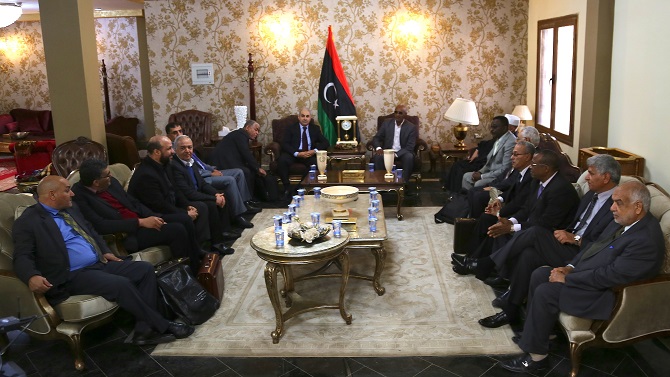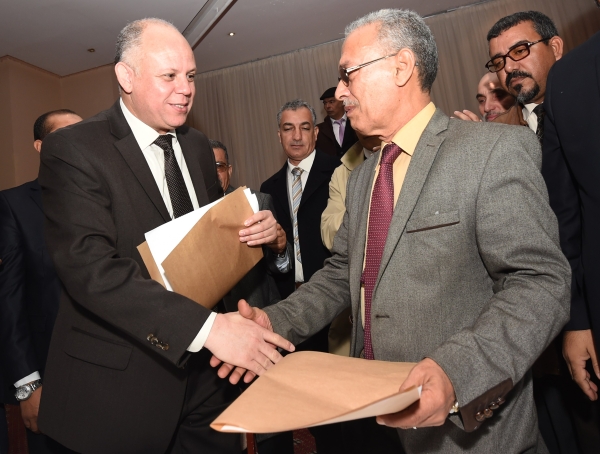By Ajnadin Mustafa.

Tripoli, 1 March 2016:
A five-member delegation from the House of Representatives has arrived in Tripoli hoping to revive the “Libya-Libya” dialogue . . .[restrict]launched in December.
After an initial flurry of activity, with the presidents of both General National Congress (GNC), Nuri Abu Sahmain and the House of Representatives (HoR), Ageela Salah, meeting in Malta, the dialogue has been moribund ever since, although it is still being championed by the GNC leadership and its allies.
Today’s delegation is being led by Benghazi HoR member Ibrahim Amaish. With GNC deputy president Awad Abdul Sadeq, he negotiated and signed the proposal to set up the Libya-Libya dialogue.
The two most important items back in December were that an amended version of the 1963 Constitution be approved as a short-term measure and that a government of national unity be appointed.
The HoR team is due to stay in Tripoli for a week of talks with the GNC and its dialogue committee headed by Abdul Saddeq, as well as with the National Accord Council, established to further the Libya-Libya dialogue, and with the 21-member committee set up by the Council.
Although dismissed as a wrecking move by the international community as well as the HoR, this week’s talks come as the UN-sponsored dialogue faces a growing uphill struggle to be endorsed by the HoR.
Amaish has indicated that some of the ideas in the UN-brokered dialogue, such as a presidency council, could be adopted in the Libya-Libya proposal. He also said that among the tasks this week would be the choice of ministers in a national unity government and the means of ensuring security across the country.
As well as the GNC president, the Tripoli regime’s Grand Mufti regularly commends the dialogue (while condemning the internationally-supported, UN-backed one).The initiative was also given fresh endorsement yesterday by the political mentor of the Muslim Brotherhood, Ali Salabi, who insisted that Libyans were moderates. If Libya was to destroy the growing threat of terrorism, he said, there had to be a national unity government agreed by all Libyans, not one appointed by foreigners who were not interested in the good of Libya. [/restrict]










